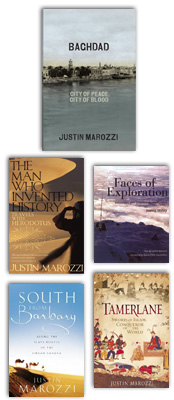When I first met Sheikh Ahmed Mursal Adam, the Head of Presidential Gardens in Villa Somalia was a spirited man in his late seventies. He told me with evident pride of his 200 children and grandchildren, the prodigious progeny of 37 wives. A year later there was an unmistakable spring in his step. The fruit of the sheikh’s loins had swelled to 215 and he had just married a bride of 27. “I’m an old man now so I need more care,” he said with a chuckle. “One wife is not enough.”
At the time I remember thinking this venerable old boy was a striking contrast to the bearded lunatics of Al Shabaab, the local Al Qaeda franchise. While he had busied himself creating life with a dedication to procreation that took some beating, these young men were bent only on destruction and killing.
I bumped into the old man again this week, together with a son and two grandsons. He had just turned 82. Something had changed. On the one hand, he had married again twice, bringing the tally of wives to 40 (the 27 year-old woman had given him a son before they parted company), and twice divorced. The sheikhly family now stood at 257, a tribute to his stamina and ability to find romance in hard times. A tribute, too, to his many wives – long-suffering and short-lived alike. We greeted each other like old friends and then I noticed his left arm hung strangely from his shoulder.
He rolled up his sleeve to reveal a misshapen arm that was bulging in all the wrong places. On 12 February 2011, he told me, a month after I had last seen him, he was in a car driving along Maka al Mukarama Street minding his own business when all of a sudden there was a terrific explosion on the road just in front of him. It was a mortar attack by the insurgents. The driver of the car swerved wildly in shock, veered across the road and smashed into a tree. Three of the five men in the car were killed. Sheikh Ahmed was one of two survivors. He broke both arms and one leg. Doctors were able to fix one leg and patched up his right arm, which remains a little crooked. But the complicated fracture of his left arm beneath the shoulder was too much for the limited local hospital in Mogadishu. The doctors shook their heads and said he’d have to go abroad for treatment. Nobody in Somalia could do anything for him.
“Al Shebab just want to destroy everything,” he said. “I like to care for a woman, they want to attack them. I still pray to Allah, please let Al Shebab be finished.”
Something else had changed. The last time I saw him, Sheikh Ahmed sported a richly hennaed beard. There was a certain swagger about him. If not quite a Mogadishu dandy and Indian Ocean boulevardier of the greatest distinction, he was a well put together fellow. Today it was white stubble, sad eyes and the swagger had become a limp. He looked a little rueful when I mentioned the beard. “I haven’t got time to look after myself like that anymore,” he said.
I congratulated him on his great brood and wondered whether he had done his bit now to increase the world’s population. Perhaps, after that epic sowing of his seed, after creating almost half a battalion of his own followers, he had fathered his last child. He wasn’t having any of it. He certainly wasn’t ruling anything out, he said. “If Allah gives me more children, I would like that,” he said. His son and grandsons hooted with laughter. “He’s started so many families,” one said.
They were proud of the old man, who had obviously set an example that they wanted to emulate – in part at least. One of them, who was still a young man, had already fathered four children and was quite clear he wanted more. A family large by British standards would appear small by Somali.
Large families are useful in a pastoralist society to look after the herds – Somalis routinely boast they have more camels than any other country in the world – as well as representing security for parents in their dotage. Childbearing typically starts early for Somali women as a result, each child being welcomed as a gift from Allah. Birth control and family planning are noticeable only by their absence, so much so that it is not uncommon to find desperately poor women in refugee camps in Mogadishu with more children than they can look after. Thanks to this cultural and religious hinterland Somali women have among the highest fertility rates in the world, with more than six children each on average. When you rack up an extraordinary 40 wives, as Villa Somalia’s head gardener had done, that’s a lot of children.
Over the course of a long life, Sheikh Ahmed has seen presidents come and go in Villa Somalia, whose improbably elegant gardens he has done so much to maintain. He started work there in 1954 – he speaks fluent Italian, the language of the old colonial masters, in addition to Somali and Arabic – and is now on his eighth president. A resilient man, like his fellow Somalis, he has weathered some of the world’s most tragic and turbulent times.
“Praise God, I have had a good life and I am happy – but without money. After I was injured, I was planning to go abroad for treatment, but I haven’t got the power to do so.” He paused and then looked straight into my eyes. “I need help,” he said.

